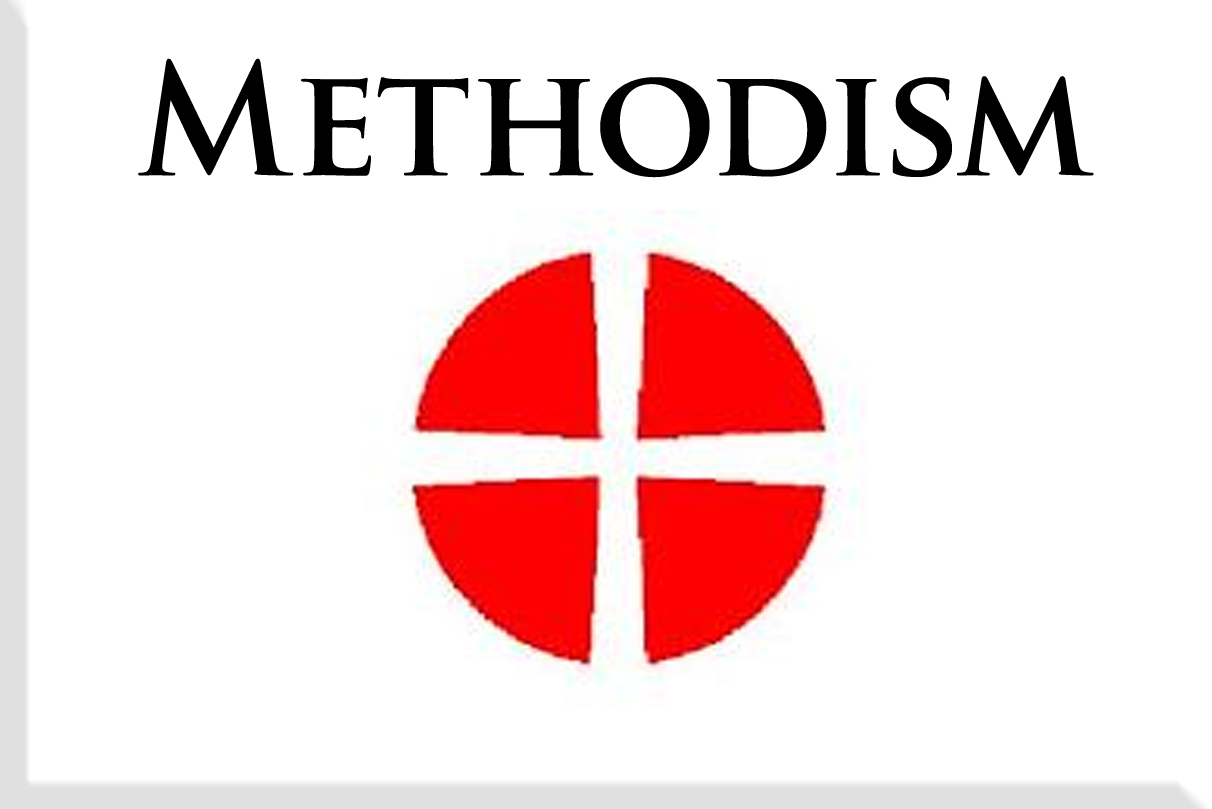
Methodism
Methodist Faith
The Methodist faith is very much a part of the wider Christian faith and as such tries to work with other denominations as much as possible. However it is distinct in a variety of ways.
The traditional summary of Methodist teaching can be summarised as below:
"All need to be saved. All may be saved. All know themselves saved; all may be saved to the uttermost".
Methodists believe that salvation is available for anyone who opens themselves up to God and not merely for the chosen few.
Methodists rationalise that human beings in the modern world find themselves in a sinful, unjust and vicious world and that we may think ourselves helpless to alter this individually. It is the Methodist believes that we are driven by lust, greed and anger but that we do not wish these factors to influence our behaviour. We may have factors that influence these urges. Poverty, hardship, or just the demands of modern life may leave us overloaded and isolated and greedy. We may have personalities that are difficult to manage or influence.
Christian belief is that God has managed to break the power of all that is evil within ourselves and the outer world, though Jesus' resurrection on the cross. They believe that if they accept forgiveness and are accessibly by the Holy Spirit, that god can help us to try to resist the Holy Spirit and live our lives to the maximum.
Methodism in Britain
Methodism is Britain does not have Bishops, as other denominations do but in run by a central organisation called the 'connexion'. The Connexion holds an annual conference and in 2005 a report was put forward suggesting that it might be time for the Methodist faith to consider having Bishops. It was agreed by the conference that this would be put forward for study and discussion. It would also need to be considered what type of Bishop would be suitable for the role.
The Connexion is made up of various districts and has a chairperson for each district. The chair may be male or female. The exception to this rule is in London where there are three chairs for the district. Districts are generally divided according to counties and within each district there are 'circuits'. These circuits hold quarterly meetings which are headed up by a 'superintendent minister'. For the majority of circuits there are fewer ministers than there are churches and services will usually be held by a local lay preacher.
There were schisms within the original Methodist church which led to the formation of separate denominations, still under the Methodist banner. Some notable examples of these were the Primitive Methodist Church, the Bible Christians and the United Methodist Church. In 1932 the three major streams of the Methodist faith in Britain united to form the Methodist Church of Great Britain.
During the 1960's the Methodist Church made proposals to the Church of England to unite the two denominations. However, these were officially rejected by the General Synod of the Church of England in 1972. However, relations between the two continued to be harmonious with cooperation happening fully and regular conversations held. To this end, in 2003, a covenant was signed between the two.
Overall, Methodism has proved to be most popular in the regions of Wales and Cornwall. The populations of which have traditionally held a distrust in the Church of England and are known for their non-conformist nature. However, the faith was also popular in the towns of Lancashire and Yorkshire, largely to their belief in the equality of working and upper classes of society.

